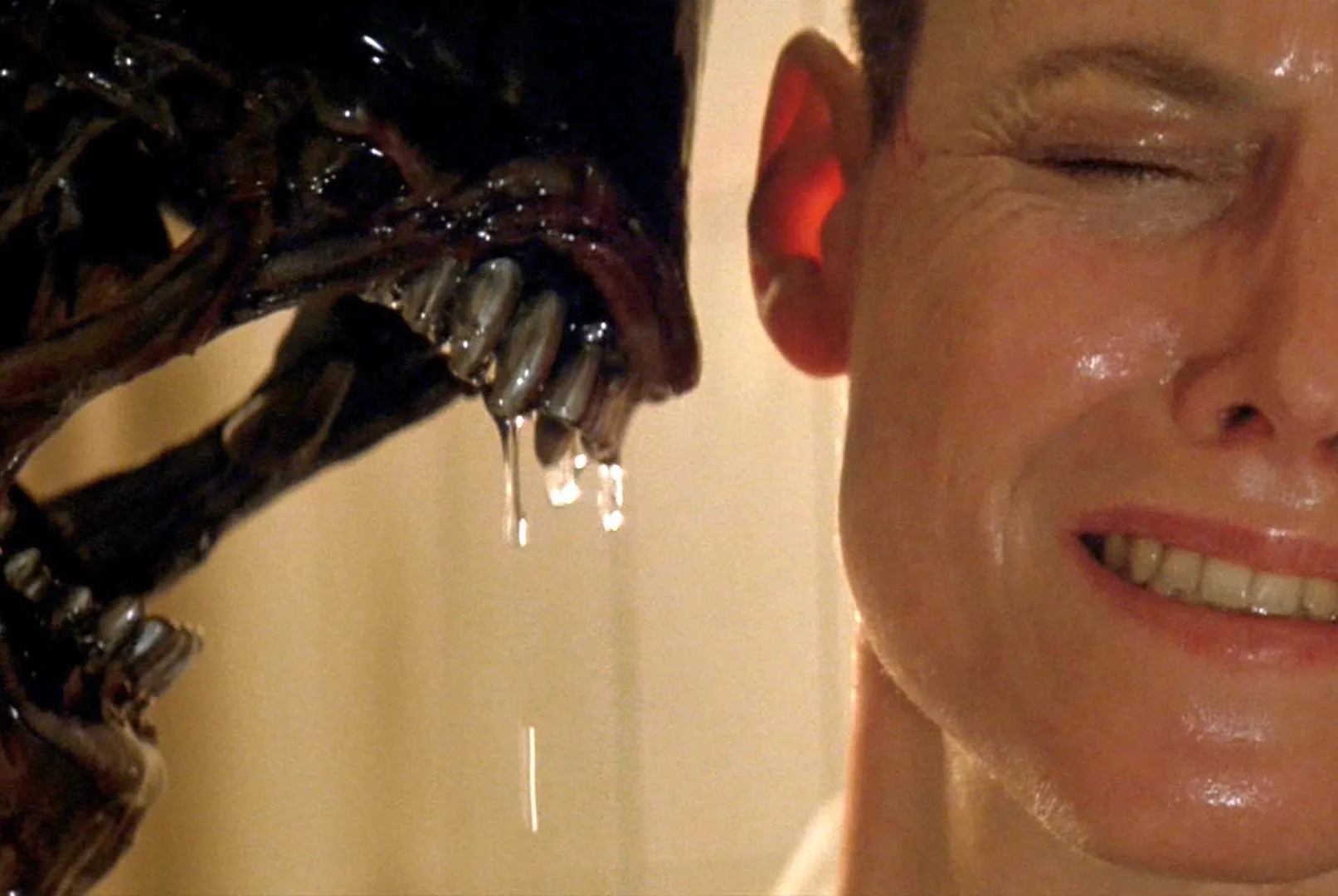Alien³ (1992)

Alien 3, directed by David Fincher and released in 1992, marks a significant departure from the themes and styles of its predecessors in the Alien franchise. Written by David Giler, Walter Hill, and Larry Ferguson, based on a story by Vincent Ward, the film continues the saga of Ellen Ripley, portrayed by Sigourney Weaver, as she confronts new and harrowing challenges in the universe of Alien. Alien 3 is notable for its darker tone, its exploration of themes related to redemption and sacrifice, and its distinct approach to the science fiction horror genre.
The film opens with a dramatic and unsettling sequence in which Ellen Ripley’s escape pod crash-lands on Fiorina 161, a desolate prison planet inhabited by male prisoners. The survivors of the crash, including Ripley, are immediately confronted by the harsh and oppressive environment of the planet and its inhabitants, setting the stage for the film’s grim and claustrophobic atmosphere. Fiorina 161 is a former labor colony now run by a religiously fervent warden and populated by dangerous and troubled inmates. This setting provides a stark contrast to the high-tech, sleek environments of the previous films, contributing to the film’s distinct visual and thematic style.
One of the central themes of Alien 3 is the concept of redemption and the idea of facing one’s past. Ripley, who has been haunted by the loss of her crew and the trauma of her encounters with the Alien creatures, is forced to confront her own fears and sins in a new and unforgiving environment. The film explores the notion of sacrifice and the burdens carried by its characters, particularly Ripley, who is driven by a sense of duty and a desire to protect others from the horrors she has faced.
Sigourney Weaver’s performance as Ellen Ripley is a key element in the film’s emotional depth and complexity. Weaver’s portrayal captures Ripley’s vulnerability, strength, and resolve as she grapples with the existential threats and personal demons that confront her. Her character’s journey in Alien 3 is marked by a profound sense of isolation and desperation, which Weaver conveys with remarkable intensity. The film delves into Ripley’s internal struggle as she seeks to come to terms with her past and make amends for the losses she has endured.

David Fincher’s directorial approach in Alien 3 is characterized by its dark and gritty aesthetic. Fincher, known for his meticulous attention to detail and innovative visual style, brings a distinct sensibility to the film. The use of shadowy, industrial settings and the film’s somber color palette contribute to its oppressive and bleak atmosphere. Fincher’s direction emphasizes the claustrophobic and inescapable nature of the prison planet, creating a sense of unease and dread that pervades the film.

The screenplay, crafted by David Giler, Walter Hill, and Larry Ferguson, incorporates elements of suspense, horror, and existential reflection. The narrative explores the dynamics between the prisoners and Ripley, as well as the impact of the Alien creature on the characters’ lives and the overall environment of the prison. The film’s plot is driven by the tension between the need to survive and the moral and ethical dilemmas faced by its characters. The screenplay also introduces new elements to the franchise, including the concept of a hybrid Alien that poses an even greater threat to the characters.

One of the film’s notable aspects is its departure from the more action-oriented approach of Aliens (1986). Instead, Alien 3 returns to the franchise’s roots in horror, focusing on the psychological and existential terror faced by its characters. The film’s emphasis on atmosphere and character development adds a layer of depth to the traditional science fiction horror formula, making it a unique entry in the series.
Despite its innovative approach and strong performances, Alien 3 faced a mixed reception from critics and audiences. Some praised its dark and daring departure from the series’ previous installments, while others criticized its narrative choices and departure from the action-oriented elements of Aliens. The film’s production was also marked by a troubled development process, which contributed to its complex and sometimes contentious reception.

In conclusion, Alien 3 (1992) is a dark and thought-provoking addition to the Alien franchise that explores themes of redemption, sacrifice, and existential terror. Directed by David Fincher and featuring a compelling performance by Sigourney Weaver, the film offers a distinctive and immersive experience within the science fiction horror genre. Through its grim atmosphere, innovative visual style, and exploration of complex themes, Alien 3 stands as a significant and influential chapter in the ongoing saga of Ellen Ripley and the Alien creatures. Despite its mixed reception, the film’s impact on the franchise and its contribution to the genre ensure its place as a memorable and significant work in modern cinema.









